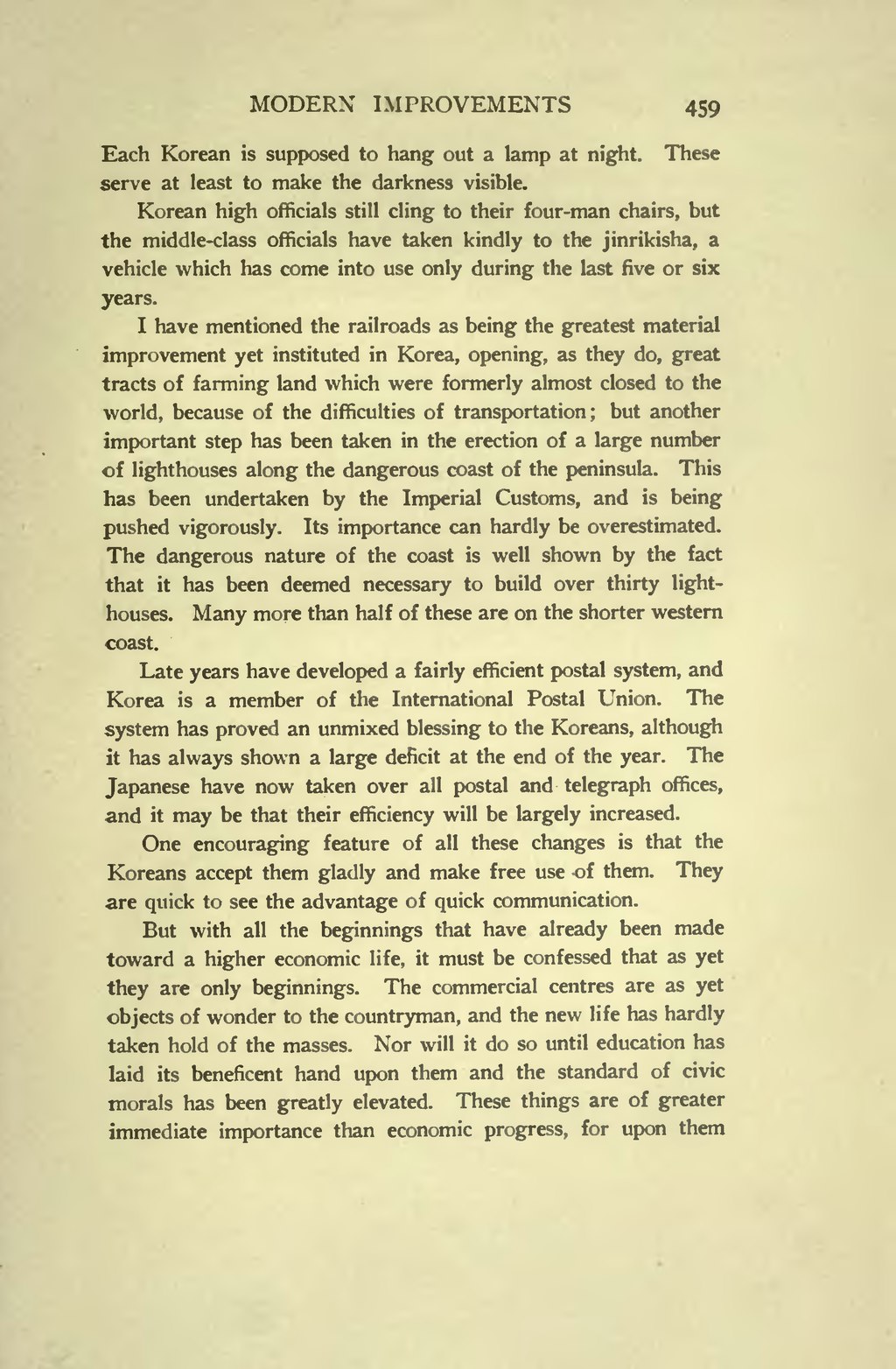Each Korean is supposed to hang out a lamp at night. These serve at least to make the darkness visible.
Korean high officials still cling to their four-man chairs, but the middle-class officials have taken kindly to the jinrikisha, a vehicle which has come into use only during the last five or six years.
I have mentioned the railroads as being the greatest material improvement yet instituted in Korea, opening, as they do, great tracts of farming land which were formerly almost closed to the world, because of the difficulties of transportation; but another important step has been taken in the erection of a large number of lighthouses along the dangerous coast of the peninsula. This has been undertaken by the Imperial Customs, and is being pushed vigorously. Its importance can hardly be overestimated. The dangerous nature of the coast is well shown by the fact that it has been deemed necessary to build over thirty lighthouses. Many more than half of these are on the shorter western coast.
Late years have developed a fairly efficient postal system, and Korea is a member of the International Postal Union. The system has proved an unmixed blessing to the Koreans, although it has always shown a large deficit at the end of the year. The Japanese have now taken over all postal and telegraph offices, and it may be that their efficiency will be largely increased.
One encouraging feature of all these changes is that the Koreans accept them gladly and make free use of them. They are quick to see the advantage of quick communication.
But with all the beginnings that have already been made toward a higher economic life, it must be confessed that as yet they are only beginnings. The commercial centres are as yet objects of wonder to the countryman, and the new life has hardly taken hold of the masses. Nor will it do so until education has laid its beneficent hand upon them and the standard of civic morals has been greatly elevated. These things are of greater immediate importance than economic progress, for upon them
